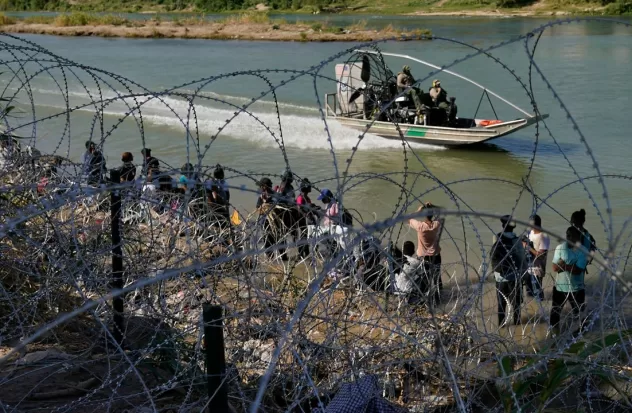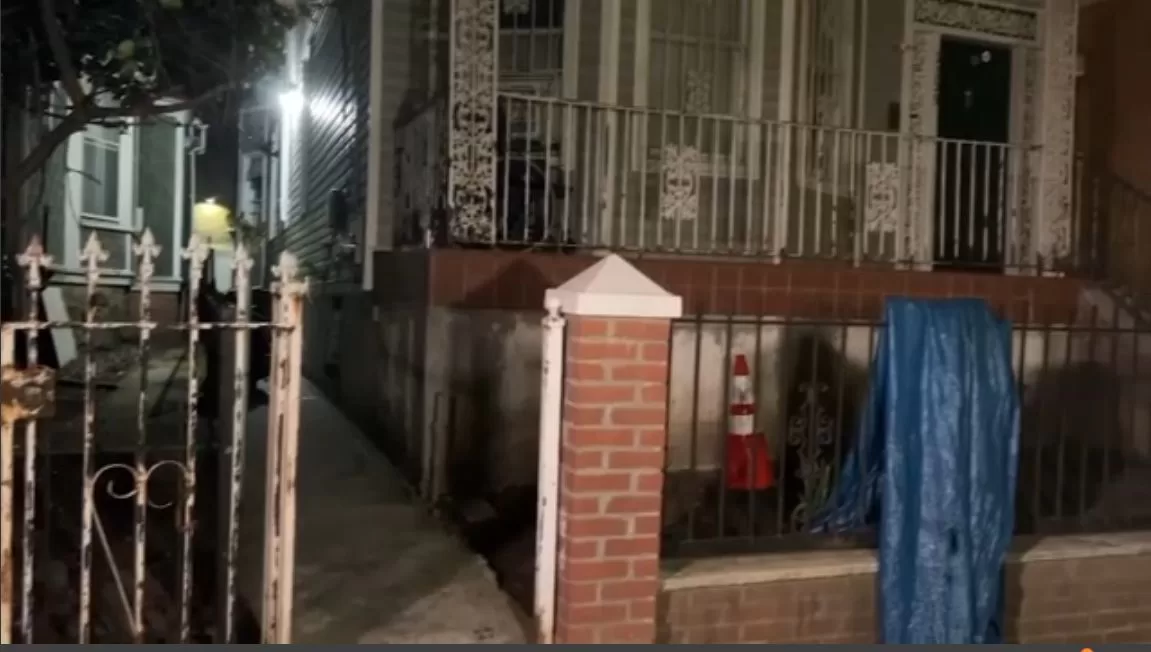Texas’ plans to detain immigrants suspected of entering the United States illegally were put on hold again Wednesday, after sparking uncertainty along the border and anger in Mexico during the brief hours the law was allowed to It will enter in vigor.
An order issued late Tuesday night by a panel of the 5th U.S. Circuit Court of Appeals temporarily put on hold, again, the state of Texas’ drastic expansion in border enforcement.
Early Tuesday, the U.S. Supreme Court had cleared the way for the strict immigration law, marking a victory for Republican Gov. Greg Abbot and encouraging Republican lawmakers in other states who are pushing similar measures. .
But later, in a 2-1 order, an appeals court panel continued the legal back-and-forth surrounding the Texas law, putting it back on hold ahead of oral arguments that were scheduled for Wednesday. It was unclear how quickly the next decision could come.
During the brief time the law was in effect Tuesday, Texas authorities did not announce any arrests had been made or say whether it was being actively enforced.
Along the border in Kinney County, Sheriff Brad Coe accepted arrest powers but said deputies would need probable cause.
“Observers are unlikely to see a change overnight,” said Coe, whose county encompasses a stretch of the border near Del Rio that until recently had been the busiest corridor for illegal crossings, but who has calmed down considerably.
The Supreme Court did not rule on the substance of the law.

Instead, it sent back to the lower appeals court an appeal filed by the Justice Department, which has argued that Texas is overstepping the federal government’s authority over immigration.
The appeals court’s latest order did not include any explanation from the panel. But it had the effect of restoring an injunction issued in February by District Judge David Ezra, which rebuked the law on multiple fronts.
His 114-page opinion rejected Republican claims that an “invasion” was underway at the southern border due to record numbers of illegal crossings.
Ezra, appointed by former President Ronald Reagan, also warned that the law could hamper U.S. foreign relations.
Under Texas law, once defendants are in custody on illegal entry charges, they can accept a judge’s order to leave the United States or face prosecution. On Tuesday, Mexico’s Foreign Affairs Ministry said in a harsh statement that it would refuse to receive anyone ordered to cross the border.
“Mexico reiterates the legitimate right to protect the rights of its nationals in the United States and to determine its own policies regarding entry to its territory,” the government said.
The impact extends far beyond the Texas border. Republican lawmakers wrote the law to apply to all 254 counties in the state, although Steve McCraw, director of the Texas Department of Public Safety, has said he expects it to apply primarily near the border.
Other GOP-led states are already trying to follow Texas’ lead.
In Iowa, the state House of Representatives on Tuesday gave final approval to a bill that would also give law enforcement in its state the power to detain people who are in the United States illegally and those who have previously denied entry into the country.
It now passes to Republican Governor Kim Reynolds. If signed, it would go into effect in July.
RELATED NEWS:
“The federal government has abdicated its responsibilities and states can and must act,” said Republican Iowa State Rep. Steven Holt.
In Texas, El Paso County Judge Ricardo Samaniego, the county’s top judge, said immigration enforcement should remain a federal, not state, responsibility, echoing the Biden administration’s view.

Samaniego explained that the increased police presence in the city of El Paso during the previous migrant surge led to high-speed chases and traffic stops based on the assumption that the passengers were in the country illegally.
“We had accidents, we had injuries, we had a small glimpse of what would happen if the State began to control what happens with respect to immigration,” Samaniego said.
Skylor Hearn, executive director of the Texas Sheriffs Association, said sheriffs’ offices have been training since last year.
“If a county chooses to take it on, they are choosing to have their taxpayers take it on as well,” Hearn said. “As long as the federal government is willing to do its part, ideally it should take possession and custody of these people.”
Daniel Morales, associate professor of law at the University of Houston Law Center, said the Texas law “will be a mess, very clearly, to enforce.”
“It’s very clear that Greg Abbott wants to enforce the law so he can get a lot of photos and opportunities, but it’s going to take a lot of state resources to enforce it. And I don’t know, in fact, how much appetite and capacity for it the state government really has,” Morales said. Texas will find enforcement “difficult and burdensome,” he said.

Arrests for illegal crossings fell by half in January from a record 250,000 in December, with sharp declines in Texas.
Arrests in the Del Rio Sector of the Border Patrol, where Abbott’s measures are focused, fell 76% compared to December.
The Rio Grande Valley, the busiest corridor for illegal crossings for much of the last decade, recorded its lowest number of arrests since June 2020.
Tucson, Arizona, has been the busiest corridor in recent months, followed by San Diego in January, but the reasons for the sudden changes are often complicated and dictated by smuggling organizations.
When President Joe Biden visited the Rio Grande Valley on his second trip to the border as president last month, administration officials attributed the drop in apprehensions to stepped up law enforcement on that part of the border. by Mexico.
They said conditions were more difficult for Mexican security forces in Sonora, the state located south of Arizona.
__________________________
We invite you to visit us on the new NY1 Noticias channel on WhatsApp. There you will find the most relevant news about what is happening in New York, as well as other coverage about the rest of the country, Latin America and the world. click in this link to access the channel. We thank you in advance if you become one of our followers and express your reaction to what we publish with an emoji.





